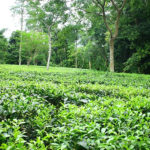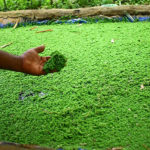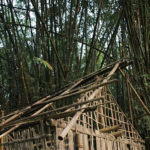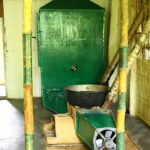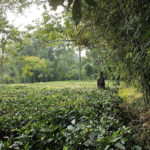Mr Rebo is a farmer from the Koliapani village in Upper Assam. Originally a teacher in a local school, he decided to plant tea shrubs in a garden he had inherited from his father in the 1990s. His first seeds came from an abandoned tea garden in Nagaland, an Indian state bordering with Burma.
Tea Production on your own – how to counter monopolies
Like many other tea-farming beginners, he started by selling tea leaves to larger producers. However, the price he got for his harvest was ridiculously low. The large tea growers who used to buy up his leaves took advantage of their monopoly and dictated the prices.
Mr Rebo’s son Rana remembers these times: as a small boy he used to bring the freshly picked leaves to sell them in a nearby factory. Often the manager refused the produce and the leaves ended up in a ditch behind the facility. Just because no one in the farmer’s family knew how to process the harvest. This was the primary impulse for starting their own tea production. Both Mr Rebo’s sons joined the business enthusiastically and in 2015 the family opened a tiny tea processing plant.
Natural Farming
Their small farm is surrounded on all sides by a forest, which protects the local ecosystem and provides it ideal conditions. At the very beginning, Mr Reba decided to run his farm in harmony with the local nature and use the knowledge of his ancestors as much as possible. He uses no chemistry to grow his tea shrubs and does his best to fight pests in a nature-friendly way. Although he cannot afford to be certified an organic producer, he stands up proudly for his teas.
We were enthralled by his products from the very first moment. His teas have clear and unorthodox taste, rich intensive aroma and specific minerality.



